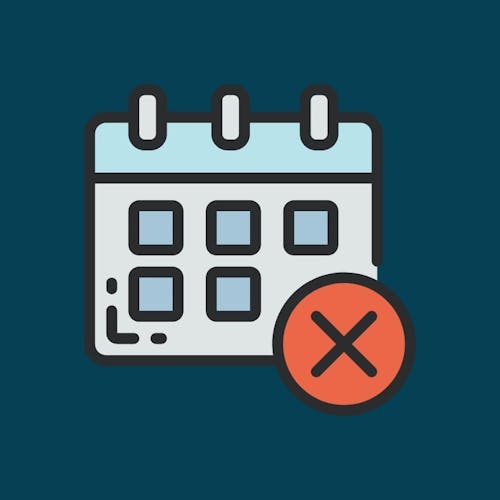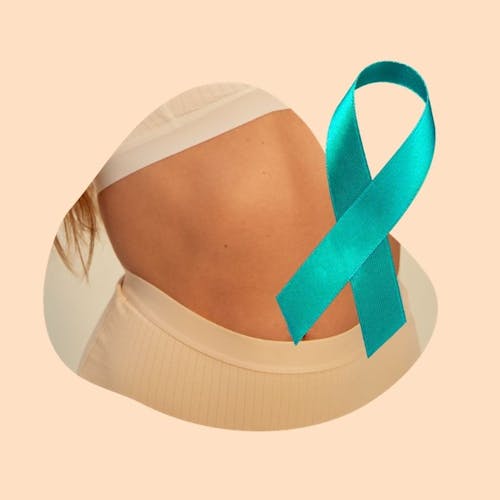This website uses cookies to enhance the user experience. By using Yoppie you are agreeing to our use of cookies.
What Is PCOS? Signs, Symptoms & How To Handle It
Written by Yoppie
03 Sep 2021
What is PCOS?
What’s going on inside?
What are the symptoms?
What causes it?
How is someone diagnosed with PCOS?
What about treatment?
Is there anything I can do at home?
I’m struggling with unwanted hair growth. What can I do?
What if PCOS is affecting my fertility?
PCOS stands for Polycystic Ovary Syndrome, and although it’s common and mentioned frequently, it’s not always clear if you have it, or what it means to be diagnosed. We’re looking at all things PCOS here on the blog; the signs and symptoms, what it means for your health and fertility, and how and where to get help and support with the condition. Let’s go…
What is PCOS?
PCOS is a fairly common condition affecting the function of the ovaries, and the main signs are irregular periods, higher amounts of the hormone androgen leading to excess body hair growth, and enlarged ovaries that can affect fertility. Most people with PCOS don’t even know it, and one study found that up to 70% of people with PCOS hadn’t been diagnosed.
What’s going on inside?
The word ‘polycystic’ actually means ‘many cysts’, but despite this name, polycystic ovaries don’t actually contain cysts. Instead, they hold harmless underdeveloped sacs (up to 8mm in size) in which eggs develop but are often unable to be released, meaning ovulation cannot take place. Lack of ovulation can alter hormone levels, meaning PCOS can cause the ovaries to produce less progesterone and more of the hormone androgen.
What are the symptoms?
The most common PCOS symptoms tend to be:
- Irregular periods - some experience less than 8 periods a year, or even none at all.
- Heavy bleeding - since the uterine lining builds up for longer, periods can be heavier.
- Hair growth - around 70% of PCOS sufferers find that excess hair grows on their face and body, such as on their stomach, back or chest. This is known as ‘hirsutism’.
- Hair loss - conversely, they may find hair on the scalp can thin and fall out over time.
- Acne - excess androgen can lead to oilier skin, causing acne on the face and body.
- Weight gain - many people with PCOS are at higher risk of obesity.
- Fertility issues - those with PCOS may find it more difficult to get pregnant due to irregular ovulation (but this does not mean it is impossible to become pregnant).
Remember, PCOS looks different for everyone, so you may have just a few symptoms.
What causes it?
Though symptoms mainly exist due to unbalanced hormones, the underlying cause of PCOS is not entirely clear. Some theories are:
- Genes - you may find that PCOS runs in your family
- Insulin resistance - around 70% of PCOS sufferers have insulin resistance, meaning their cells can’t use insulin properly. Insulin is a hormone made by the pancreas to help the body use sugar from food for energy. When it is not used properly, the need for insulin increases and the pancreas makes more, triggering the ovaries to produce more of the hormone androgen.
- Inflammation - one major cause of insulin resistance is obesity, and this is also a major factor for those with inflammation, which can also affect the hormones.
How is someone diagnosed with PCOS?
There is no single test to diagnose PCOS, but your doctor may ask about your medical history and do a physical exam to check any symptoms. They may recommend a pelvic exam to check for growths or abnormalities, blood tests to check hormone levels, or an ultrasound to examine your ovaries.
What about treatment?
As there is no cure for PCOS, treatment is all about managing individual symptoms and concerns, such as hair growth, fertility issues, acne and obesity. Your doctor may recommend medication to treat these symptoms.
If you are trying to get pregnant and experiencing problems, remember that many people with PCOS are able to get pregnant with the right advice and treatment from their doctor, and there are many options available, including medicines and simple surgical procedures.
Is there anything I can do at home?
Sure! Lifestyle changes are sometimes recommended by doctors. This may mean losing a small amount of weight, adding moderate exercise activities to your routine, and eating healthy foods in order to improve overall health and lessen symptoms. In general, the healthier you are, the less likely you will be to experience severe PCOS symptoms.
I’m struggling with unwanted hair growth. What can I do?
The hair growth and hair loss side of PCOS is a toughie, but there are medicines available to control this, including certain contraceptive pills that can block the effects of the hormones androgen and testosterone, and can suppress their production in the ovaries. There are also creams to slow the growth of facial hair, as well as many hair removal options, so don’t be shy about asking your GP for advice if you are struggling with this symptom.
What if PCOS is affecting my fertility?
PCOS is one of the leading causes of fertility issues in people with periods, but fortunately most people with PCOS can still get pregnant - Victoria Beckham being a great example, four children later! The majority of people can be successfully treated with medication or injections, and IVF is often an option for those struggling with PCOS-specific fertility issues.
Typically, the first option offered to those who are trying to conceive is a medicine called clomifene which encourages ovulation. In many cases, this is enough to result in pregnancy, but if not there are several other options available.
Do you have questions about PCOS? We chat about this and much more over in our Full Stop FB group, and you can get in touch on our Instagram at @itsyoppie to ask any questions you have - we’d love to help you find the answers you need. Don't forget that our personalised period box can get organic tampons, PMS supplements and much more delivered easily and regularly through your letterbox, so that's one less thing to worry about each month.
Section jump
Back to top
Subscribe To Our Newsletter
YOPPIE





© 2026 Yoppie is a registered trademark of Phlo Technologies Ltd.
Yoppie's supplements are not a substitute for a varied diet and healthy lifestyle and are not intended to diagnose, treat, or cure any disease. If you are pregnant, breastfeeding, have a medical condition or are under medical supervision, please consult with your doctor before taking any of our products.






